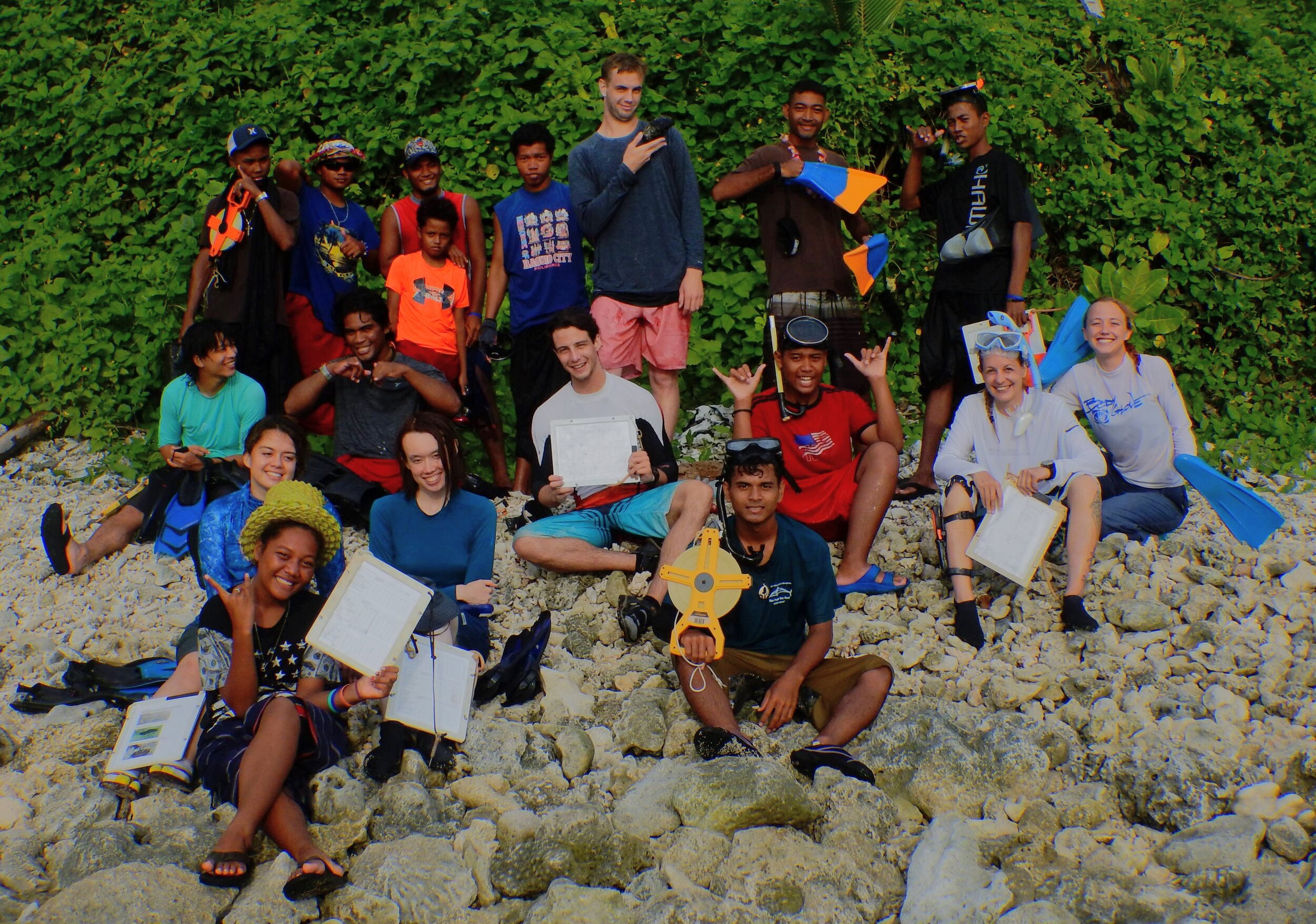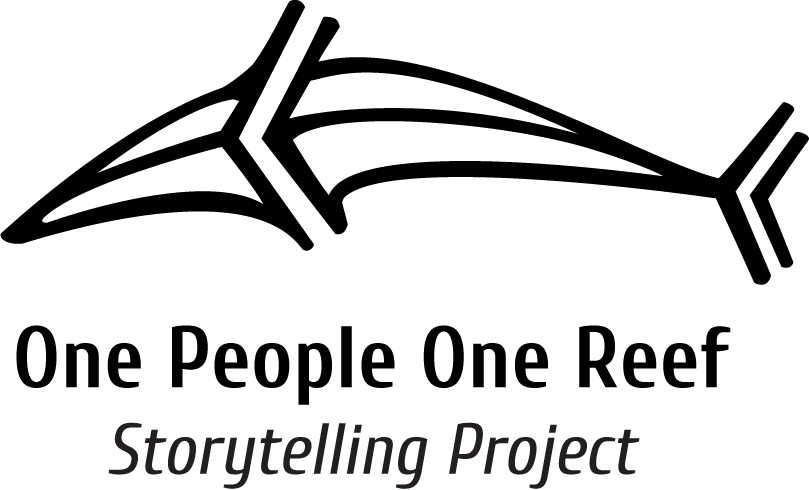
One People One Reef combines scientific and traditional approaches to coral reef management. Here, Dr Peter Nelson leads a fisheries workshop on Elato Atoll.
Local scientists on Ulithi Atoll have compiled a database of some 80,000 fish, after participating in workshops like this one. This data has helped pinpoint the impact of newer fishing techniques on ecologically important species, and complements local fishers’ knowledge.

Communities decide how to implement management in a way that will work in their social and cultural context.
In this photo, Program Co-Leaders Nicole Crane and John Rulmal are shown managed areas on Elato island by local partners

The OPOR Science Team monitor reef health with annual surveys. Here, Dr Michelle Paddack conducts a benthic survey on Woleai Atoll.
The ratio of coral and algae cover, the presence of crustose corraline algae, and the diversity of corals are all important indicators of reef health.

Community meetings allow the team to hear community members' perspectives and to share results of scientific work.
This is a meeting on Piserach Island, Namonuito Atoll in 2017, OPOR’s first expansion beyond Yap, into, Chuuk State.

OPOR has a special focus on engaging young people with stewardship of their reefs and islands
Lamotrek Atoll, 2017

Coral reef ecologists May Roberts and Eva Salas preserving anemonefish samples to use DNA for identifying connectivity between the atolls

OPOR draws from both tradition and cutting edge science and technology
Drone mapping of reefs combined with data from our fish and invertebrate surveys will help communities determine where to target their management strategies.

Engaging young people in stewardship of their islands is key to the success of our work
As part of the Ulithi Youth Project, local and visiting students conduct reef surveys and learn about the natural history of the reefs.

Part of our work is recording, reviving and sharing traditional management practices across the Outer Islands.
Eric Tong of the University of Hawaii and Santos Whichimai from Ifaluk Atoll. Santos shared details of fishing pressure, traditional management practices and taboos with Eric. These practices represent the practical application of the values and knowledge shared in the storytelling sessions.









